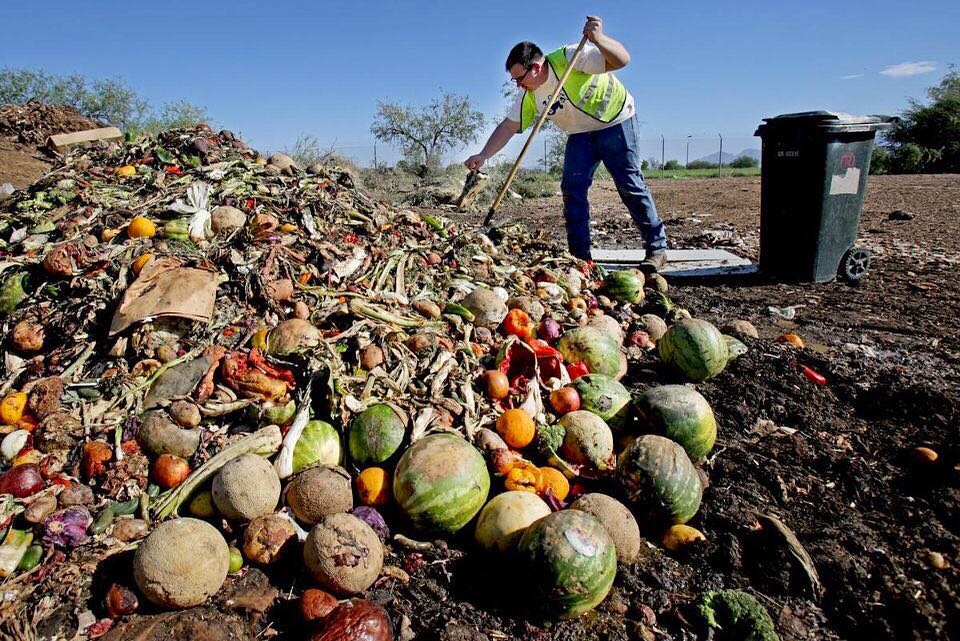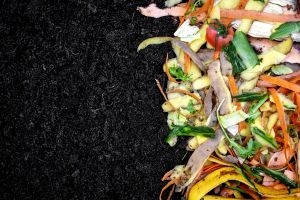Here We Go Again – This Time at Ground Zero
Print this Article | Send to Colleague
One of the reasons USCC exists is to fight for high-quality compost and compost producers—and to equip our advocates and communities to do so as well.
It’s time to ring the bell again!
The need to re-educate policy makers on the need to source separate organics seems to have come up in cycles throughout USCC’s history – and this time it’s happening at one of the longest-running, most educated markets for compost and composting: Seattle and Washington State.
Buried in a 2024 bill (HB2301) that brought about good things such as more rigorous labelling requirements and food rescue and diversion goal expansion, was a provision to address contamination at organics management facilities through rulemaking.
Why is this a concern? Because USCC has been through this before in its history*, most recently in another important, but much smaller, market: Vermont and the Northeast. Pre-covid, the first depackaging site for anaerobic digestion opened in Maine, and was followed by several others. Commercial/institutional contracts for collection and processing of clean, separated material by Vermont compost businesses were broken rapidly in favor of collection of mixed loads of trash acceptable to these new operations. The compost producers had came into being due to Vermont’s Universal Recycling Law calling for statewide food rescue and diversion of organics. These emerging businesses were successful, processing clean material (think a dumpster of moldy supermarket bakery waste with minimal contamination) from their customers. We saw composters shrink and go out of business – and production of quality compost decrease.

Compost producers AND food rescue operations in Vermont lost sources of food for food rescue or composting—and found as they saw the newly mixed commercial loads, that more material went to landfill now than in the early years’ ramp up to the ban on organics disposal. As a result, Vermont legislators called for a moratorium and Task Force on Depackaging to dive into the issue and study how SSO could be encouraged. The Task Force finished its work and after several years delay rules, first set by a policy, are underway.
A similar scenario is unfolding in Washington State; rules are being developed to address setting contamination levels that encourage source separation, no matter whether the system is food rescue, composting or anaerobic digestion.
There are currently no Washington State regulatory standards for incoming contamination in depackaging operations; compost facilities already follow a default minimum contamination rate of 5% as is needed in order to produce a compost that is high quality for restoring soil health. No compost facilities in Washington currently receive recyclables or trash as part of their acceptance list.
It is clear that when the Washington Legislature and Gov. Jay Inslee signed HB2301, source separation was intended. Key advocates believed this was what the bill did: “It will be great when more of our residents are separating their food scraps and sending them to composting or other technologies such as anaerobic digestion or even vermiculture by worms,” Heather Trim, executive director of Zero Waste Washington, said in a statement. (Waste Dive, 2024).
USCC encourages any Washington resident or company to weigh in through the Deparment of Ecology's online comments form. Please find a further description of the importance of supporting source separated organics in Washington, as well as a sample comment that you may copy, here. Comments are due on the rules by 11:50 pm PST, August 3, 2025.
USCC is not against depackaging as a process--indeed, many of our members use it to effectively separate packaged materials from organics or to help tackle excessive contamination. The key is to not use it as an excuse to throw easily source-separated organics into a bin mixed with waste, which some vendors of other technologies plan to do—but to bring quality food scrap that is easily separated at back-of-house institutional and commercial operations to composting to restore our soils, which is the best circular solution for food scrap.
We need a fair and equitable business environment for compost producers to ensure that there is high-quality compost available to meet demand. It is critical to the USCC to help support and maintain the principle of source separation as the cornerstone of any jurisdiction’s diversion strategy. It will be important to create clear standards for pre-processing facilities, including the consideration of bans on accepting recyclables, limits on garbage contamination, and required recovery rates and reporting. Such policies will keep the focus on true source separation, where businesses sort their food waste from trash and recyclables, and allow for maximum diversion of waste to resources.

*See USCC’s History page for the start of USCC as the Solid Waste Composting Council in 1990, when trash composting and diaper composting caused several corporations to form the organization.

